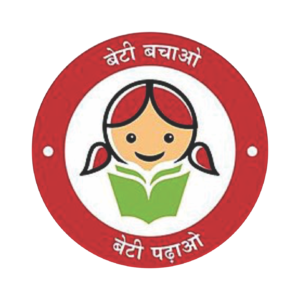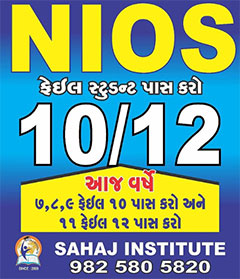SENIOR SECONDARY
SOCIOLOGY
________________________________________________________________________
Rationale:
________________________________________________________________________
After studying up to the Secondary level, a student starts developing some understanding of the nature and character of the society he lives in.
Sociology explores all aspects of social relationships, and it helps to understand why human beings create the societies they inhibit and how they behave with other individuals and groups in which they live. Sociology is considered as another of all Social Sciences because it studies the economic, political, anthropological historical, geographical and psychological dimensions of society. Sociology, however, is primarily concerned with the diversity of human relations particularly along the lines of social class, race, ethnicity, gender and age etc.
Ignorance about society is the root cause of all social evils. The knowledge, obtained by scientific methods, about society can contribute to the development of a good society. August Comte, father of Sociology, has said that man would become the master of his social destiny as soon as he develops a science of society.
Change is continuous and permanent. The changes occurring today in the world make Sociology an extremely important subject to study. This course of Sociology will make students familiar with processes of change and development in general and with reference to Indian society in particular. The learner, as a student and citizen, needs to be exposed to the comprehension of the reality and the realization of the predicament.
Objectives
This course has the following objectives:
· To familiarize the learner with the basic concepts in Sociology.
· To make them familiar with various social institutions and social divisions in society.
· To make them familiar with the process of change and development in society in general and with reference to Indian society in particular.
· To familiarize them with different dimensions of Indian Society.
· To enable the learner to look at social realities objectively.
· Finally to inculcate among students ability to perceive social realities scientifically.
Distribution of Marks and Time
__________________________________________________________________
Module Marks Study hours
________________________________________________________________________
| 1. | Sociology: Basic concepts | 30 | 70 |
| 2. | Social Institutions and Social | 12 | 35 |
| stratification | |||
| 3. | Social Change Socialization and | 13 | 35 |
| Social Control | |||
| 4. | Indian Society | 30 | 60 |
| 5. | Optional (Any One) | 15 | 40 |
| Status of Women Or Culture | |||
| Total | 100 | 240 |
________________________________________________________________________
Module I
Title : Sociology: Basic concepts
Time: 70 hours Marks : 30
Approach: This module is meant to introduce Sociology to the learner. It acquaints the learner with the definition of Sociology, its development and growth, relationship with other Social Sciences. It further exposes the learner to certain techniques used in Sociological research. This module also explains important basic sociological concepts.
Contents:
1.1 An Introduction to Sociology
1.2 Emergence and Development of Sociology
1.3 Sociology: Its Relationships with other Social Sciences
1.4 Methods and Techniques of Research in Sociology
1.5 Society, Community, Association and Institution
1.6 Social Groups
1.7 Social Structure and Social System
1.8 Norms and values
1.9 Status and Role
1.10 Cooperation, Competition and Conflict
1.11 Acculturation, Assimilation & Integration
Module II
Title : Social Institution and Social Stratification
Time: 35 hours Marks: 12
Approach: This module has been designed to acquaint the learner about major social institutions found in a society and also to acquaint him with the system of social divisions based on hierarchy, differentiations and inequality.
Contents
2.1 Marriage
2.2 Family
2.3 Kinship
2.4 Economy, Polity and Religion
2.5 Social Stratification: Hierarchy, Differentiation and Inequality
Module III
Title : Social change, Socialization and Social Control
Time 35 hours Marks: 13
Approach: This module acquaints the learner with the processes of social change in society, and how an individual becomes an accepted member of a society through socialization. It also explains how social control is maintained in a society and the relationship between society and environment.
Content:
3.1 Factors of Social change
3.2 Processes of Social Change
3.3 Socialization
3.4 Social control
3.5 Social Deviance
3.6 Society and Environment
Module IV
Title: Indian Society
Time: 60 hours Marks: 30
Approach: This module acquaints the learner with certain Indian Social thinkers and various dimensions of Indian society. It sensitizes the learner with major social problems of India in general and of certain weaker sections in particular.
Content:
4.1 Indian Social Thinkers
4.2 Unity and Diversity
4.3 National Integration: Concept and Challenge
4.4 Indian Society: Tribal, Rural and Urban
4.5 Caste System in India
4.6 Major Religious communities in India
4.7 Major Social Problems of India
4.8 Problem of Scheduled Castes and Scheduled Tribes
4.9 Problems of other Deprived Sections
Module V
Optional Module
Time: 40 Marks: 15
Approach: These modules have been designed for enrichment of knowledge in a specific area of interest of the learner, either about status of women or culture. Learners can select one out of the two modules for study and examination.
(a) Status of Women:
Approach: This module has been designed to acquaint the learner with the status of women from historic to present times. It also explains gender discrimination and problems of women and their quest for equality and empowerment.
5.1 Society and Environment
5.2 Historical and cultural perspectives
5.3 Gender Discrimination
5.4 Problems of women
5.5 Quest for Equality and Women’s Empowerment.
OR
(b) Culture
Approach : The module has been designed to acquaint the learner with the concept of culture and its characteristics. This also enriches the knowledge about different aspects of culture in general and with particular reference to Indian cultural heritage. It also briefly tells us about the influence of media on culture.
5.1 Culture: Concept and Characteristics
5.2 Indian Cultural Heritage
5.3 Cultural Pluralism
5.4 Media and culture
For any help related to admission in NIOS please contact Sahaj Institute on our Mobile No. 9825805820, 8200311128.



